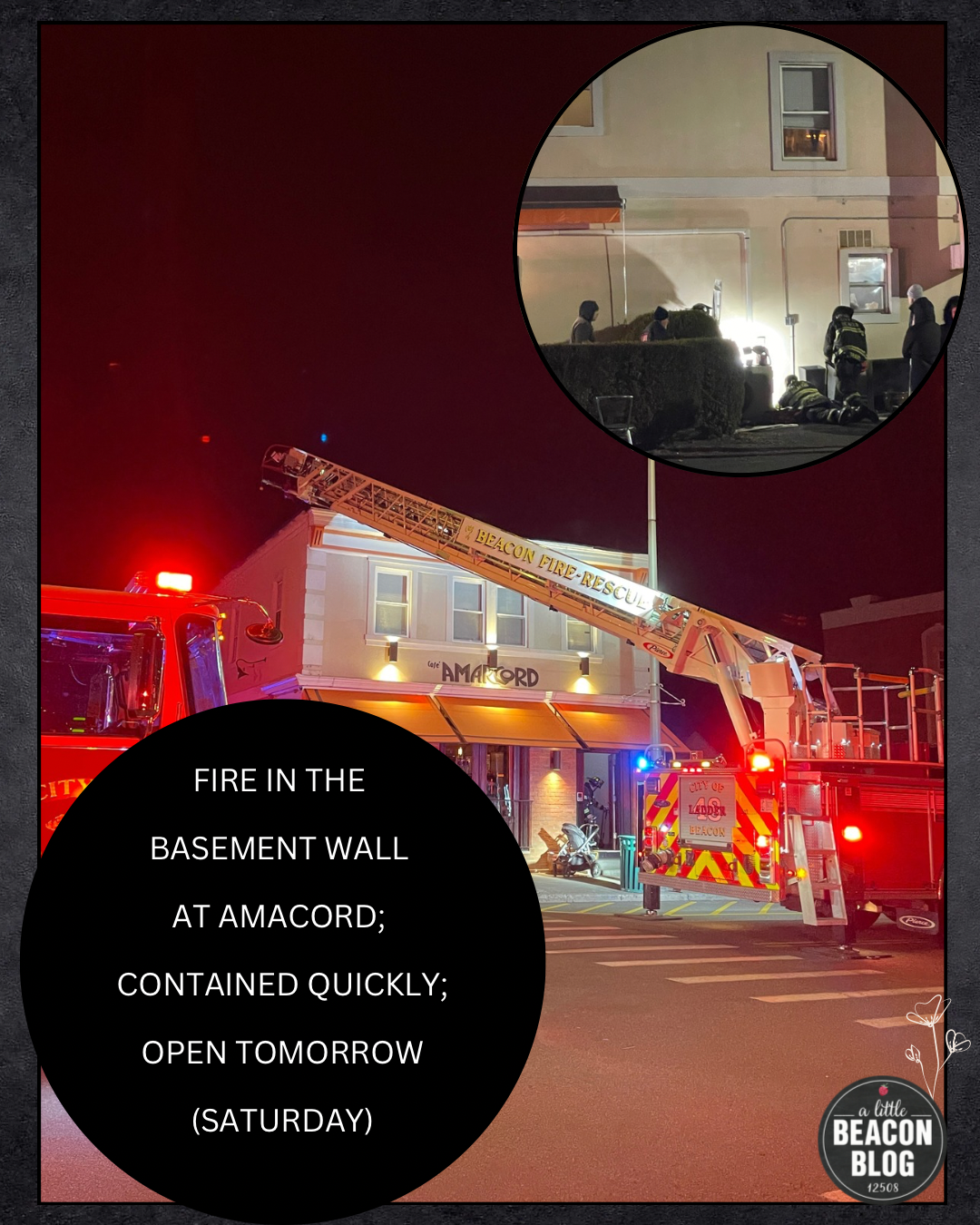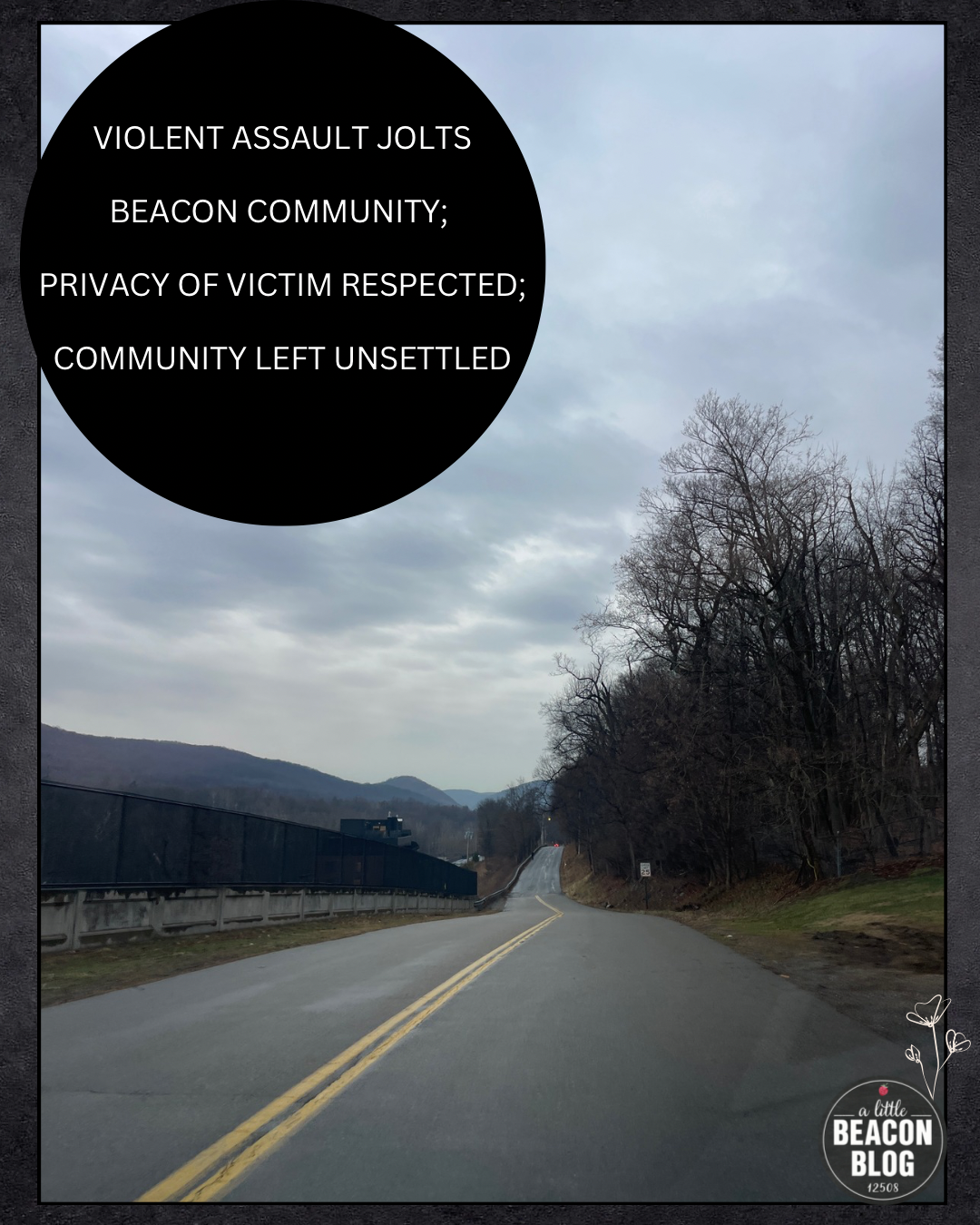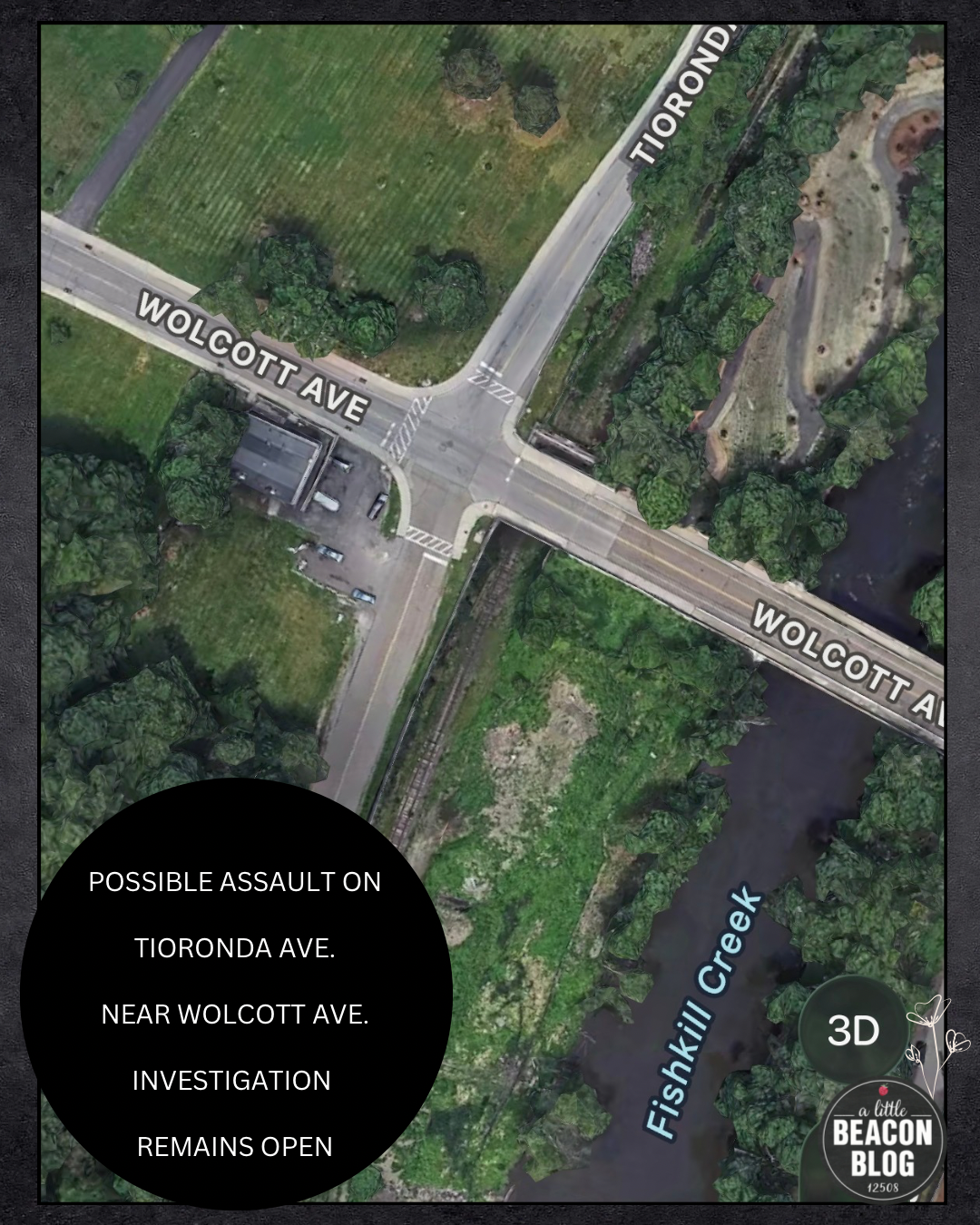MTA Responds With Details Of Tasering Of Mentally Ill Man On Main Street In Beacon
/RELATED LINKS:
Mentally Ill Man Tasered On Beacon's Main Street; Allegedly Pursued By MTA Police From Train Station (5/25/2021)
A Little Beacon Blog reached out to the MTA to confirm or clarify details of the Tasering of a mentally ill man on Main Street on Wednesday, May 19, 2021. ALBB sought the details of how the MTA Police were alerted to the initial issue to cause them to pursue the main in question.
A reader submitted partial video of the incident, along with testimony of what that person recording video said they saw. Other people who were on the street that day, and other days, have chimed in with additional details. These details are being included here if they cross referenced each other.
According to the MTA, the man in question was harassing people on the train platform at the Beacon station, shouting obscenities, and threatening. Prior to this, an MTA Police Officer who was just walking on patrol at the Beacon station saw this man behaving erratically, saying curse words.
The man in question then left. After the man left, a pair of women reported to the MTA Police Officer that he had been threatening them, saying “I am going to kill you,” and cursing. Once those threats were made clear to the officer, the officer informed - aka “put it over the wire.” ALBB has not pursued video footage of the platform to confirm the activity. ALBB is awaiting answer from the MTA on if its officers wear body cameras.
Roughly 20 minutes later, a pair of other MTA Police Officers responded by finding the man in question, who at that point was at the beginning of Main Street. That is where they sought to detain the man. That is when he resisted arrest, and the Taser came out and was used on the man on Main Street outside of storefront shops.
According to a witness, the MTA Police Officers pressed the man in question up against storefront windows in order to apprehend him. The witness on Main Street told A Little Beacon Blog: “The officer said he was resisting arrest, but they had him in a hold, so the other cop said: 'I’m going to taser you’ like 3 times. And they did. Several times, and he screamed.”
A witness on Main Street said: “They told me the man they apprehended has a long history of arrests and is mentally ill, but they Tasered him a lot…There were caps all over the place. The cop cleaned up some after.”
As seen in the video, after being Tasered, the officer delivering the electric charge tells the man to “stand up.” The man is held by the second officer from behind, and the man states: “Help me get up.” According to the MTA, after the officers placed the man in the car after he was Tasered, and they took him to a hospital, where he was checked to make sure he was fit enough for discharge after being Tasered. He was processed at the MTA District 7 Headquarters (aka “barracks”) on Beekman Street. He was given an appearance ticket for court, and released. He was charged with 3 charges:
Aggravated harassment
Menacing in the 3rd Degree
Resisting arrest
According to the City of Beacon Officer Reynolds on Beacon's information desk, the Beacon Police were not called for this incident.
The man in question is in his early 20s, and may have an address in Poughkeepsie. He has been arrested 22 times by the MTA Police, with several arrests happening in Beacon. Within this month - Mental Health Awareness Month - the man in question had another incident in the middle of Main Street with officers. There was a warrant out for his arrest on a trespassing case, where he had not shown up to court. It is not known if he is houseless, or if he is functional enough to open the mail, or write down a court appearance date in his calendar. It is not known at this time if he carries a calendar.
Beacon Police were dealing with him on Main Street recently. The man has been attempted to be Tasered before in a separate incident by New York State Police, but the taser didn't “stick.”
ALBB has not pursued the number of arrests, if any, made by the Beacon Police or New York State Police. New York State Police also have jurisdiction in Beacon and throughout the state. Here is New York State’s Arrest Without A Warrant criminal procedure that explains where an officer can go throughout the state to make an arrest.
How Does A Taser Work?
According to this New York Times article, a Taser has 2 prongs that are discharged from the Taser to the person. According to the article, for each charge (or discharge), 50,000 volts of electricity are pulsed into the person’s muscles for up to 5 seconds. The goal is to render the muscles frozen. According to the New York Times article, “the shock can cause pain that has been described as excruciating.”
According to this DIY Taser Maker web page, “this gadget generates substantial voltage pulses which can disrupt muscle tissues and neurological system, forcing any individual who touches it into a condition of mental bewilderment.” You can also read about the effects on a person’s body here at ABC News.
Are Tasers Recommended For People With Mental Health Conditions?
According to the New York Times article, “The devices can bring an abrupt halt to a confrontation and disable an uncooperative person, but if they are discharged and don’t work — or even when they do — sometimes the effect can be to make things worse.”
“If a person is angry, under the influence of alcohol or drugs, or has a mental illness, the use of a Taser can exacerbate those conditions and inflame a situation, said Joel Feinman, the chief public defender in Pima County in Arizona.”
The man in question in Beacon is known to MTA Officers. The situation that involved this particular Tasering happened after the man allegedly cursed and made threats to the people on the train platform, and had left. It was on Main Street that he was apprehended, resisted, and was Tasered.
This man is one of several mentally delicate people who walk up and down Main Street on a daily basis. He does mumble to himself, curse to himself, and approach people for money. People like himself have been known to walk into storefronts and places of business - or to parking lots - to encounter people with an ask or demand. The experience of when he does that can be jarring and frightening.
Dutchess County prides itself on providing several Mental Health services. During Beacon’s City Council Meetings, several Mental Health presentations have been made this year alone, including information about why hiring a Mental Health professional from Mental Health America of Dutchess County was a good idea. According to the Mid Hudson News: “The addition of a mental health intensive case manager was highlighted as one of the initiatives called for the City of Beacon’s newly adopted police reform plan.
It is not known at this time if that professional thinks it a good end game to continue Tasering this man in question in order to bring peace to his life, and to residents, visitors and businesses owners in Beacon. It is also not clear if Beacon’s new Mental Health professional was consulted by MTA Police on their tactic for dealing with a known mentally unstable person who regularly behaves the same way.
Perhaps they think that electric therapy delivered on the sidewalk is the best treatment. Perhaps Tasers are just protocol, and perhaps MTA Police Officers aren’t encouraged or trained in other ways of dealing with a regular person in the community after in non-violent situation 20 minutes after an alleged incident.
Tasers Mentioned In Beacon’s Police Reform Report
After the murder of George Floyd and the reckoning that awakened after that across the nation, Governor Cuomo issued Executive Order 203 that all municipalities must deliver their visions of how to police in their communities. At this time, it is not clear if that Executive Order 203 includes MTA Police, other train police, and New York State Police.
The MTA Police, which the MTA says has roughly 30 officers working from the barracks just below the City Of Beacon Police Station who can patrol up and down the region of the Hudson line all the way into Long Island, were not factored into public discussions on Police Reform, but do drive regularly through Beacon, and are authorized to do police work in Beacon.
According to the Highlands Current, the Metropolitan Transportation Authority Police Department (MTAPD) was formed in 1998 when the Long Island Rail Road and the Metro-North Railroad Police Departments merged. "After the terrorist attacks of Sept. 11, 2001, the department expanded and dramatically expanded its counter-terrorism capabilities," the article reports. In 2005, the department expanded when the Staten Island Railway Police Department also became part of MTAPD.
The MTA Police are used as “mutual aid” with the City of Beacon when necessary, much like how neighboring Fire Departments cross municipalities and county lines during a fire to help each other.
The City of Beacon worked very hard on its Police Reform plan, with input from the community, and submitted it to New York State in March 2021. It includes mention of Tasers and how officers are trained. An excerpt from the City of Beacon’s Police Reform and Modernization Collaborative Report is below:
The Beacon Police Department has a recent history of progressive training. All patrol officers are trained in a 40-hour Crisis Intervention Training(“CIT”) course, which helps to train officers to help persons with mental disorders and addictions to access medical treatment rather than place them in the criminal justice system.
This evidence-based strategy has been found effective in reducing the risk of injury or death during emergency interactions between police and persons with mental illness. In addition to the CIT Training, the Department conducts regular in-service training on topics including Workplace Violence, Sexual Harassment, Use of Force Policy and Law, De-escalation Techniques, Administration of Narcan (to address opioid overdoses), CPR/AED, Defensive Tactics, Active Shooter Response, Blood-borne Pathogens, and Taser and OC spray (pepper spray) use.
The Department is adding eight hours of Procedural Justice training and eight hours of Implicit Bias training for all officers for 2021. Procedural Justice training focuses on how the police interact with the public. Procedural justice is based on four central principles: "treating people with dignity and respect, giving citizens 'voice' during encounters, being neutral in decision making, and conveying trustworthy motives." Research demonstrates that these principles contribute to relationships between authorities and the community in which 1) the community has trust and confidence in the police as honest, unbiased, benevolent, and lawful; 2) the community feels obligated to follow the law and the dictates of legal authorities, and 3) the community feels that it shares a common set of interests and values with the police.







































